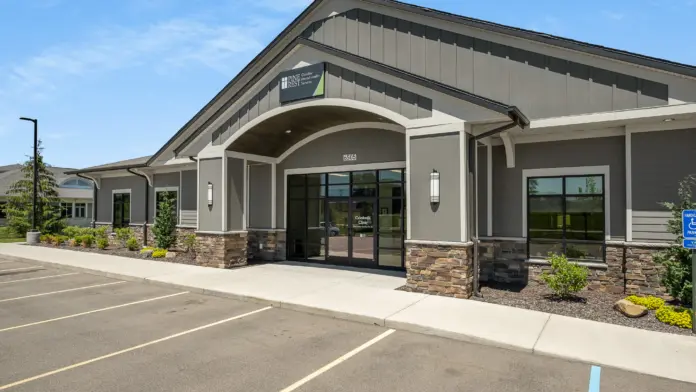About Pine Rest Caledonia Clinic
When you first call in, you will receive a brief telephone assessment. You will then come into the office for your first appointment.
They have an intensive outpatient program (IOP) for people with SUD. This means you will come in for therapy several times a week for a few hours. They also offer standard outpatient services where you will come in for an hour or two a week. All clients have group and individual therapy. The clinic also offers several groups that meet online to make support even more convenient and accessible.
Your individual therapy sessions will be custom to your needs. They use many different therapeutic methods. Most people are treated with a form of behavioral therapy that teaches you to think less negatively in order to change behaviors that are hurtful. They also use motivational interviewing in which the therapist will remain objective and ask you questions designed to motivate you to change. They offer interpersonal therapy that teaches you how to better communicate with people.
One thing that makes this place stand out is that they use psychodynamic therapy. This is a type of treatment in which a psychotherapist helps you to unlock memories in your subconscious. Therapists who practice this method believe that understanding your past will help you understand your current behaviors.
The clinic also offers family and couples sessions. Your loved ones must understand how best to help you in recovery. These sessions provide helpful insights to encourage support and restore broken relationships.
Latest Reviews
Rehab Score
Gallery
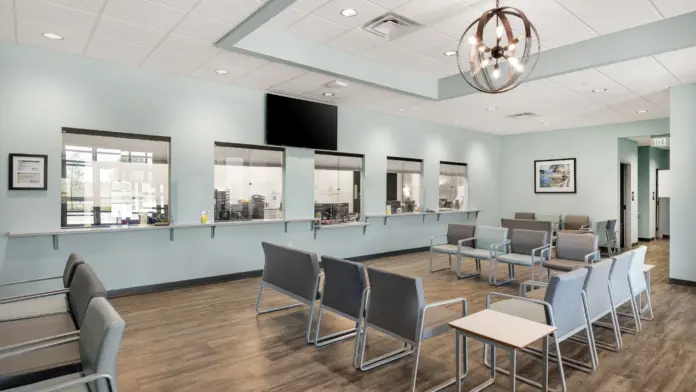
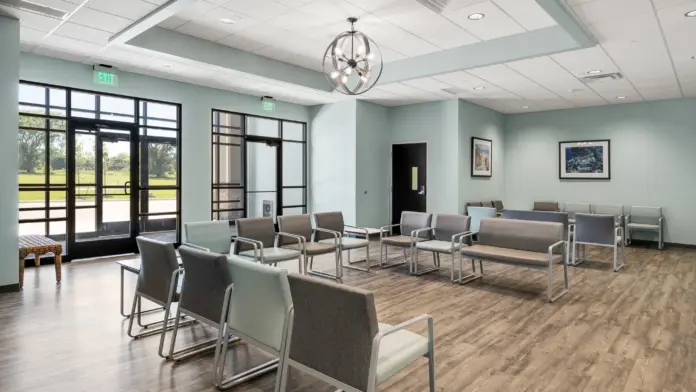
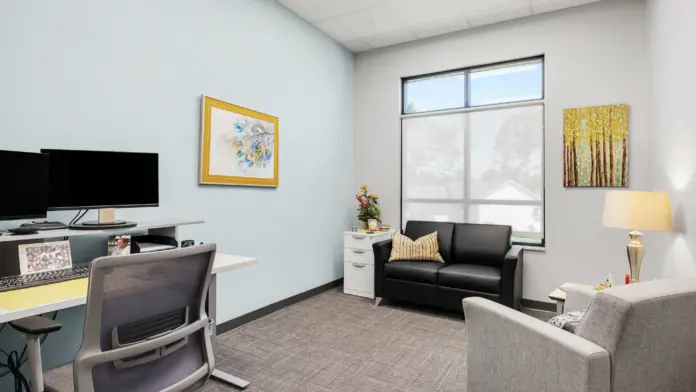
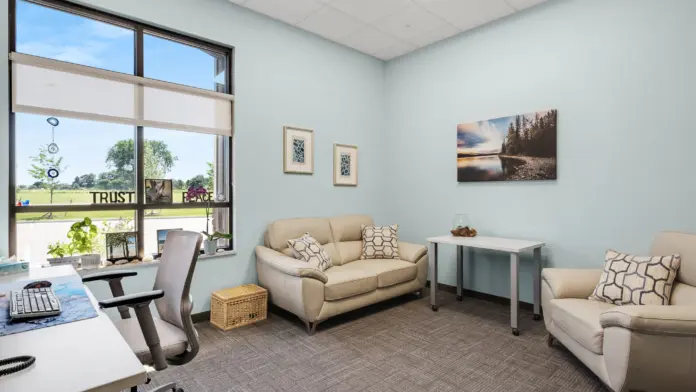
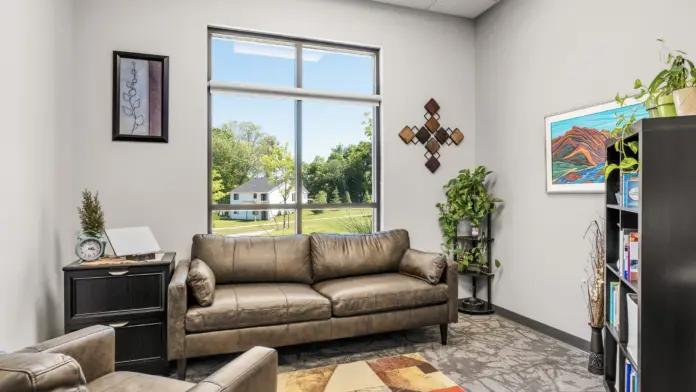
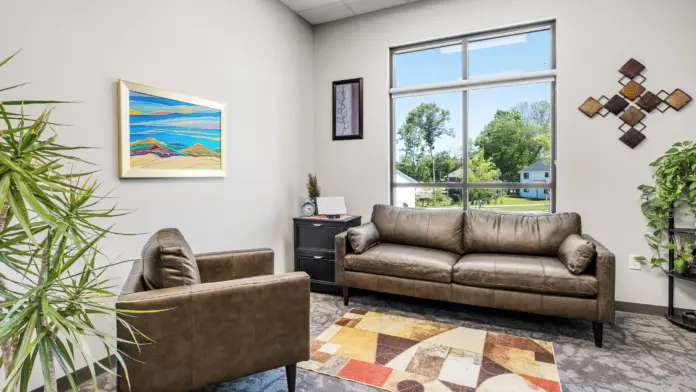
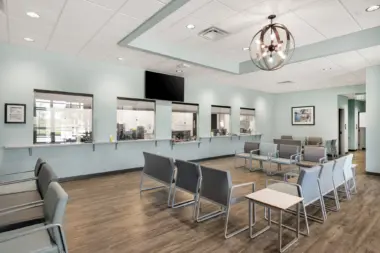
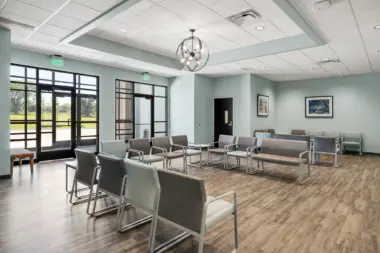
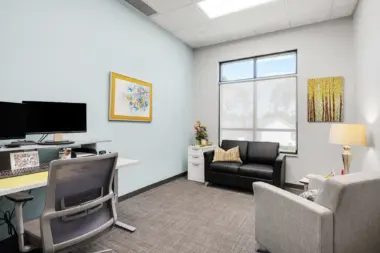
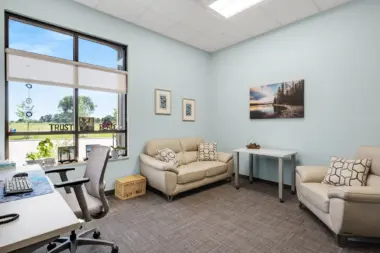
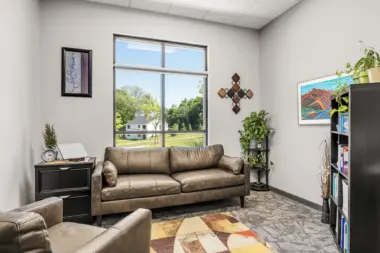
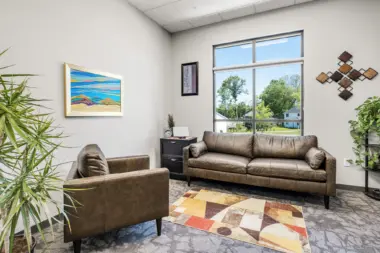
Accepted Insurance

Other Forms of Payment
Financial aid can take many forms. Centers may have grants or scholarships available to clients who meet eligibility requirements. Programs that receive SAMHSA grants may have financial aid available for those who need treatment as well. Grants and scholarships can help you pai for treatment without having to repay.
Medicaid is a state based program that helps lower-income individuals and families pay for healthcare. Medicaid covers addiction treatment so those enrolled can use their coverage to pay for rehab. When a program accepts Medicaid the client often pays very little or nothing out of their own pocket.
Medicare is a federal program that provides health insurance for those 65 and older. It also serves people under 65 with chronic and disabling health challenges. To use Medicare for addiction treatment you need to find a program that accepts Medicare and is in network with your plan. Out of pocket costs and preauthorization requirements vary, so always check with your provider.
Private insurance refers to any kind of healthcare coverage that isn't from the state or federal government. This includes individual and family plans offered by an employer or purchased from the Insurance Marketplace. Every plan will have different requirements and out of pocket costs so be sure to get the full details before you start treatment.
Self-pay involves paying for treatment out of your own pocket. You can use savings or credit, get a personal loan, or receive help from family and friends to fund your treatment. If you don't have insurance or your insurance plan doesn't cover a specific program, self-pay can help ensure you still get the care you need.
Financing your treatment can make treatment more accessible. You'll work with your care provider to set up payment plans, including interest rates and repayment timelines. Financing options vary widely and not all programs offer them, so be sure to get the full details before enrolling in treatment. If you have insurance or other benefits, financing may help you cover your remaining out of pocket expenses.
Addiction Treatments
Levels of Care
Pine Rest’s outpatient clinics provide counseling, psychotherapy and psychiatric services for individuals of all ages as well as couples, families and groups. Pine Rest offers outpatient substance use disorder treatment to adults, adolescents and families in 12 licensed outpatient clinics throughout West Michigan. Outpatient substance use treatment is provided by experienced credentialed therapists and is generally facilitated through the use of individual one-to-one sessions lasting 45 to 60 minutes. All therapists are capable of treating persons with both mental health and substance use disorders.
Telehealth lets you get the support you need from the safety and comfort of your own home. You can visit with your healthcare provider online via your favorite device. This saves time and money and may allow you to connect with a specialist sooner than an in-person appointment would allow.
Treatments
Inpatient addiction treatment includes mental health services designed to help you succeed in recovery or avoid relapse. Standard treatments include individual and group therapy sessions, relapse prevention education, and coping skills training. One of the main goals of therapy in rehab is to help you improve your mental health, eliminate patterns of unhealthy thinking that tend to drive or support self-destructive behaviors, and replace unhealthy patterns with healthy and rational thought patterns.
Programs
Adult rehab programs include therapies tailored to each client's specific needs, goals, and recovery progress. They are tailored to the specific challenges adult clients may face, including family and work pressures and commitments. From inpatient and residential treatment to various levels of outpatient services, there are many options available. Some facilities also help adults work through co-occurring conditions, like anxiety, that can accompany addiction.
Young adulthood can be an exciting, yet difficult, time of transition. Individuals in their late teens to mid-20s face unique stressors related to school, jobs, families, and social circles, which can lead to a rise in substance use. Rehab centers with dedicated young adult programs will include activities and amenities that cater to this age group, with an emphasis on specialized counseling, peer socialization, and ongoing aftercare.
Recovery is most successful when clients feel accepted and validated by their peers and treatment providers. Facilities that offer LGBTQ-inclusive programming are committed to creating a safe space where everyone can grow and recover without fear of judgment or discrimination. They will have dedicated policies in place to create a safe and supportive environment that fosters free expression.
Serving in the military is both mentally and physically challenging, and can result in trauma that persists even after combat ends. Military programs are tailored to the specific and often complex needs of active duty personnel, veterans, and military families. Clients often access these programs through the U.S. Department of Veterans Affairs (VA).
Clinical Services
Cognitive Behavioral Therapy (CBT) is a therapy modality that focuses on the relationship between one's thoughts, feelings, and behaviors. It is used to establish and allow for healthy responses to thoughts and feelings (instead of unhealthy responses, like using drugs or alcohol). CBT has been proven effective for recovering addicts of all kinds, and is used to strengthen a patient's own self-awareness and ability to self-regulate. CBT allows individuals to monitor their own emotional state, become more adept at communicating with others, and manage stress without needing to engage in substance abuse.
Both internal and external factors can put stress on a relationship. Couples therapy helps you and your partner work through those stressors and find healthy ways to deal with challenges as they arise.
Group therapy is any therapeutic work that happens in a group (not one-on-one). There are a number of different group therapy modalities, including support groups, experiential therapy, psycho-education, and more. Group therapy involves treatment as well as processing interaction between group members.
In individual therapy, a patient meets one-on-one with a trained psychologist or counselor. Therapy is a pivotal part of effective substance abuse treatment, as it often covers root causes of addiction, including challenges faced by the patient in their social, family, and work/school life.
Trauma therapy addresses traumatic incidents from a client's past that are likely affecting their present-day experience. Trauma is often one of the primary triggers and potential causes of addiction, and can stem from child sexual abuse, domestic violence, having a parent with a mental illness, losing one or both parents at a young age, teenage or adult sexual assault, or any number of other factors. The purpose of trauma therapy is to allow a patient to process trauma and move through and past it, with the help of trained and compassionate mental health professionals.
Whether a marriage or other committed relationship, an intimate partnership is one of the most important aspects of a person's life. Drug and alcohol addiction affects both members of a couple in deep and meaningful ways, as does rehab and recovery. Couples therapy and other couples-focused treatment programs are significant parts of exploring triggers of addiction, as well as learning how to build healthy patterns to support ongoing sobriety.
Research clearly demonstrates that recovery is far more successful and sustainable when loved ones like family members participate in rehab and substance abuse treatment. Genetic factors may be at play when it comes to drug and alcohol addiction, as well as mental health issues. The family program is a 10-week series designed to assist family members in understanding the disease of addiction and to develop healthy coping skills.
Amenities
-
Wifi
-
Residential Setting
-
Private Rooms
-
Hiking
-
Mountain Views
-
Walking Trails
Staff & Accreditations
Staff
Jody Vanderwel
Chairperson
Doug Josephson
Vice Chairperson
Mark Eastburg, PhD
President & CEO
Bill Sanders, DO
VP & CMO
Folabo Dare, DO
President of the Medical Staff
Bob Nykamp, MA
VP & COO
Paul Karsten, MA
VP of Finance & CFO
Susan Langeland, MBA
VP of Continuum Development & CIO
Andrew Dow, MHA, SHRM-SCP
Director of Human Resources
Harmony Gould, MBA
VP of Hospital & Residential Services
Scott Halstead, PhD
VP of Outpatient & Recovery Services
Gretchen Johnson, DNP, RN-BC
Chief Nurse Executive
Fred Kegel
Director of Facilities
Donald MacKenzie, MA
Executive Director of Pine Rest Foundation
James Rose, MS, MA
Director of Marketing & Communications
Bibhas Singla, MD
VP & Medical Director, Hospital and Residential Services
Accreditations

The Commission on Accreditation of Rehabilitation Facilities (CARF) is a non-profit organization that specifically accredits rehab organizations. Founded in 1966, CARF's, mission is to help service providers like rehab facilities maintain high standards of care.
CARF Accreditation: Yes

LegitScript has reviewed Pine Rest Caledonia Clinic as part of their certification program, and has determined that it meets the LegitScript standards for legality, safety and transparency.
LegitScript verified in

The Joint Commission, formerly known as JCAHO, is a nonprofit organization that accredits rehab organizations and programs. Founded in 1951, the Joint Commision's mission is to improve the quality of patient care and demonstrating the quality of patient care.
Joint Commission Accreditation: Yes
Contact Information
6505 Cherry Mdw Dr SE
Caledonia, MI 49316
